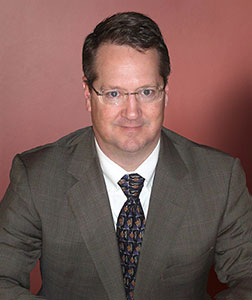Defending against a 2nd or 3rd offense OUI can be challenging for both the defendants and their attorneys. However, Mike Bowser, a DUI defense lawyer in MA, has had some recent success and shares his strategies in the podcast below.
Recent 3rd Offense OUI Case Results
John: Sure, so Mike, we were talking about second and third OUI offenses and you were mentioning some recent case results. Can you tell us about those?
Mike: Yes. In the last week, we had the opportunity to be in the Springfield District Court, the Lowell District Court, and the Newburyport District Court. In each of those courts, we had a third offense OUI, a third offense OUI, and a second offense OUI.
John: What’s the significance of these cases in Massachusetts?
Mike: In Massachusetts, under Melanie’s Law, we have a lifetime lookback provision. If you have a prior offense any time in your life, whether it be 10, 15, or 20 years ago, those are counted as prior offenses. And the significance of that is you can find yourself charged with a third offense OUI in Massachusetts, which is a felony. It carries a mandatory six month jail sentence and it also carries a mandatory eight year loss of license. The second offense in Massachusetts is a misdemeanor that also carries a mandatory period of either hospitalization or incarceration. The loss of license there can be two years.
Resolving 3rd Offense OUI Cases
John: How are these cases successfully resolved?
Mike: Most of the felony level OUI offenses resulted in jury trials in Springfield and another one in Lowell. I was able to obtain “not guilty” verdicts on both of those OUI charges from juries in those two courts. And with the OUI second offense, before the Newburyport District Court, that was successfully resolved by what’s called a “motion to suppress,” where the legal argument made to the court prior to trial was that the particular police department lacked reasonable grounds to actually stop, detain, and then arrest the driver. And the judge agreed and issued a ruling saying that that seizure of the motor vehicle, the stop and the arrest was in fact unconstitutional and that results in the OUI charge being dismissed out, which is essentially the same as a “not guilty” just without the trial.
John: What was it that the police did wrong in that case?
Mike: It is just that they were operating on a BOLO, or “be on the lookout” for a particular vehicle with a description of the vehicle and a plate. But the caller that called it in really lacked any reasonable grounds to make an assumption that that driver was in fact impaired. The police were lying upon that report. And it turned out that the basis for that report lacked sufficient detail and therefore exercising a stop based on that kind of a sketchy report of an alleged impaired driver was the reason the court agreed that they did not have grounds to pull the person over.
John: Can you give us some more details about the other cases?
Mike: The other ones were one was a state police stop on the highway and that resulted in the typical battery of field sobriety tests. And that trial was very much about the field sobriety testing sequence itself, and they focused at cross-examining a state police trooper on those field sobriety tests. The other one was a speed stop, then again there was a loss of the video and I’ve argued that the jury should be suspect of the department that videotapes each and every arrest that did not produce the video in that particular case. These cases are very factually distinct and specific. Every case is different, so we had two very different approaches with each one of those OUI third jury trials.
What Happens After a Case is Resolved
John: What happens now with these three drivers?
Mike: The significance of the “not guilty” verdicts and the outright dismissal is that in Massachusetts, again under Melanie’s Law, we have a graduated system of chemical test refusal suspensions, meaning if you refused a chemical test — which all three of these drivers did, they have an absolute right to do so – your license would be revoked. For a second offender, the license is revoked for a period of three years. For the third offenders, their licenses are revoked for a period of five years through the Registry of Motor Vehicles. The law states that upon an acquittal or an outright dismissal, they are now entitled to request to the judge that conducted the trials or the motion to suppress to issue an order to the Registry of Motor Vehicles to reinstate their driver’s license. So the significance and the importance of the “not guilty” [verdict] and the dismissal is that they are now in a position to get their driver licenses restored from those administrative chemical test refusal suspensions.
John: As we know, when you have your license suspended, it can really have far-reaching consequences in your life, your loss of job, if you have to commute to your job. It can be really difficult on a family if you have to use your car to go pick up your kids at school and things like that. This is a big life change for these drivers in that they may be able to get their licenses back.
Mike: Absolutely and [being] able to drive and get their lives back on track is exactly what we’re hoping to do.
John: All right, that’s really great information Mike. I appreciate you speaking with me today.
Mike: Thank you again for having me.
John: For more information about Mike Bowser, visit www.bowserlaw.com or call 888-526-9737.




